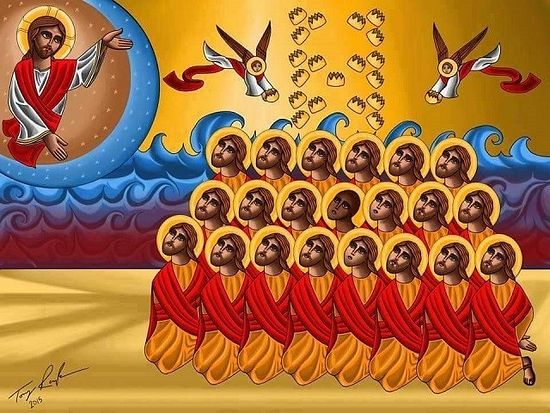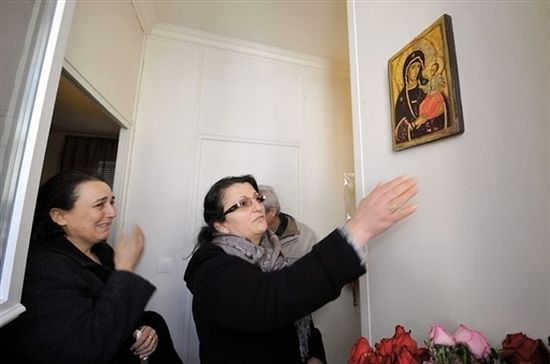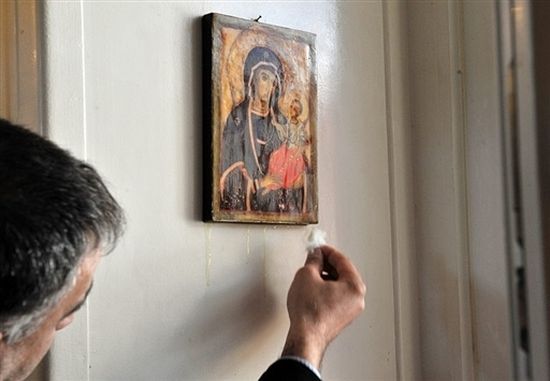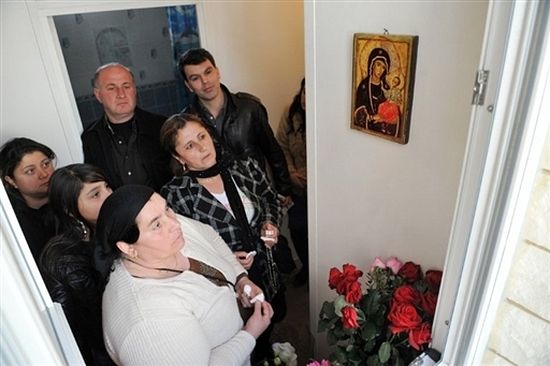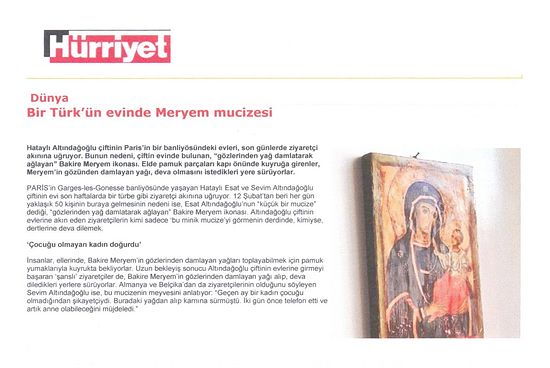From Fr. Alexis Trader’s site, Ancient Christian Wisdom:
How to Respond to
Those Who Grieve?
March 4, 2015 By fatheralexis
It’s not easy to know what to say or what to do for
someone who has just lost a loved one. What that loved one really meant to the
bereaved, how that loved one’s presence completed their world, and what the
world looks like now that the loved one is gone, the bereaved and only the
bereaved fully know. That is why grief is so exquisitely personal, so
undeniably unique, and often frustratingly inscrutable not only for others, but
even for the person experiencing grief. “The heart is deep” (Psalm
64:6), and as Saint John Chrysostom puts it, “Nothing is as obscure (ἄδηλον) as the human heart” (Commentary on the Prophet
Jeremiah, 17, PG 64.916). So how can someone looking in from the
outside hope to help someone else suffering from grief?
Kimberly Calderwood, in her 2011 article “Adapting the
Transtheoretical Model of Change to the Bereavement Process,” notes that
“bereaved people undergo a transformation of self rather than returning to
their original state.” Employing a model used for understanding how people
change in recovering from addictions, Calderwood suggests that the bereaved
also go through stages in which both the way they look at their loss and their
willingness to act work in tandem to change their thoughts, feelings, and
behavior thereby transforming their entire selves. According to this well-known
model, the five stages are pre-contemplation, contemplation, preparation,
action, and maintenance. In colloquial terms, they involve the stage of not
being ready to think about a change, followed by a time in which one considers
what changes might be necessary, followed by a period of mentally preparing to
make the changes, leading to a stage in which one acts on the basis of one’s
decisions, and then reaching a plateau in which one maintains one’s status
until a new cycle of change is called for.
What do these stages look like in the case of grief? In
terms of thoughts, the person begins thinking “it’s all a bad dream” until it
sinks in that “life will never be the same.” Afterwards, a person thinks about
how to move forward until deciding on doing or seeing things differently
culminating in accepting the fact that the loss will always be there. In terms
of emotion, the grieved usually are initially numbed and may be unable to
articulate their feelings. Then, the emotions become less intense and more
easily identifiable. Afterwards, there is an oscillation between hope and despair
until a sense of peace is at last reached. With respect to behavior, in the
beginning one just goes through the motions of living and then without really
trying one begins to function a bit better. Later on, the grieving turn to the
task of planning how to continue to maintain a bond with the departed. Finally,
the individual puts changes in place reaching a new normal.
Although everyone is unique and truly the heart is deep,
the knowledge of this process of change can offer some guidance about offering
the appropriate support at the right time. In the preparation stage, the
grieved often need help with basic needs such as meals and time to rest. In the
contemplation stage, they may need assistance with the ambivalence over trying
to recommence with life. In the preparation stage, they often need extra
support, because others often withdraw and might expect the grieving to get
“over it.” In the action stage, the bereaved may need encouragement in
selecting realistic goals for the new life without their loved one. And finally
even in the maintenance stage, when moments of grief arise on anniversaries, an
encouraging word can do wonders in helping someone to continue to “fight the
good fight and keep the faith.”
Support is necessary for everyone, especially those who
are grieving over a loss. As Saint John Chrysostom put it, “It is God’s will
that we receive benefit from one another, for why else has He commanded us to
pray for peace and stability of the world? Why has He commanded us to pray in
behalf of everyone when that includes robbers, tomb-raiders, thieves, and
people rife with a thousand vices, but so that they might return” (Homily 3 on
Philippians, PG 66.205). And for Christians, it is helpful to
recall that just as God “gives us our nourishment in due season” (Psalm
144:15, LXX), so we should help in good season (ἐν εὐκαιρία) those who are grieving, for
as the wise Solomon once said, “How good is a word spoken in due season!” (Proverbs
15:23).
Timing is clearly everything, according to both psychologists
and the fathers. Timing requires not only compassion, but also sensitivity that
comes from really looking at our grieving brother or sister, trying to perceive
where they are, and responding to them according to their hour of need. From a
Christian perspective, in order to really see them, we need the light of
discernment. As Saint Peter of Damascus puts it, “we need this light before we
say or do anything. When it is present we are able to view everything else with
wonder.” Now, “discernment is born of humility” (Book 1). So if we
still do not know what to do or say in the presence of the grieving, if we
can’t pinpoint what stage they are in, let us at least strive to be genuinely
humble before their suffering, for humility is “that light wherein the love of
Christ is found” (Saint Isaac the Syrian, Homily 57). The love of Christ is the
ultimate answer to the grieving at any stage, for it “surpasses all knowledge”
and enables the believer to “be filled with the fullness of God” (Ephesians
3:19). When the fullness of God replaces the emptiness of loss, when the light
of Christ replaces the darkness of death, then the soul of the grieving finds
not only peace, but also the strength to put on Christ and walk in newness of
life.














